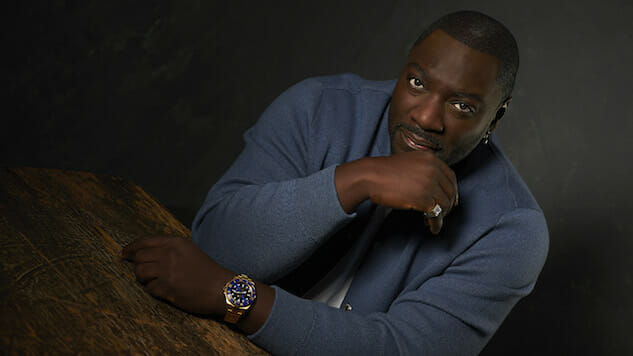The Fix‘s Adewale Akinnuoye-Agbaje on Researching O.J. Simpson and Working with Marcia Clark
Photo: Ed Herrera/ABC
A famous black man is accused of murdering his wife. After a sensational trial, he’s found not guilty. The Los Angeles district attorney who prosecuted him faces criticism from all sides.
Sound familiar?
There’s a reason it does. Marcia Clark, the DA who famously prosecuted O.J. Simpson, serves as executive producer and co-writer of the ABC drama The Fix. In the series, district attorney Maya Travis (Robin Tunney) is pulled back to the city and career she left behind when movie star Sevvy Johnson’s second wife is murdered and Sevvy is the prime suspect. Adewale Akinnuoye-Agbaje stars as Sevvy, a man who insists he’s innocent even as the evidence against him piles up.
Perhaps best known for playing the mysterious Mr. Eko on Lost, Akinnuoye-Agbaje infuses Sevvy with complex emotions and motivations. One minute you think he’s not guilty, the next you’re convinced he did it.
Paste recently had the chance to talk to Akinnuoye-Agbaje about playing a character inspired by O.J. Simpson, working with Clark, and his new movie, Farming, which tells the fraught story of his childhood. [Editor’s note: The following interview has been lightly edited for clarity and length.]
Paste: When I’m watching the show, my mind keeps changing about Sevvy. I can’t decide if he’s innocent or guilty. Did you know going into the project whether Sevvy had done it?
Adewale Akinnuoye-Agbaje: I did know. Knowing whether you’re guilty or not it certainly makes it more challenging to play the duplicity. It’s a lot more helpful not to know. I would do a take where I was guilty and I would do a take where I was not guilty. So I had my little techniques. In order to have the audience guessing, I proposed this to the directors and the writers and that’s how I played it.
Paste: How do you begin to play a character who’s been accused of murder twice?
Akinnuoye-Agbaje: I think it’s like any character I’ve played. I’ve played many dubious characters in my career. All have been accused of certain crimes, none of which I’ve fortunately committed in my real life. Obviously, with Sevvy Johnson there was a wealth of material the series was inspired by, so I was able to actually go into that with Marcia as well. We reviewed evidence. I watched the O.J.: Made in America documentary. I did a lot of research around the case just to put me in the mindset of the type of character I’d be playing.
Paste: You’re not playing O.J. Simpson, but Sevvy is clearly inspired by him.
Akinnuoye-Agbaje: Even though he’s fictional, it gave me a rich resource to pull from. I was around in L.A. at the time that that case was going on, so I had my own references to what I felt and how I had seen other people react, so I had a certain amount of informed knowledge about it. I think one aspect of this character that was intriguing to me and that I hadn’t seen in the case or in the media is how it impacted him as a person and his immediate family, so that was interesting to me—to really look into the family background and psychological and emotional turmoil that a high-profile case like this can inflict, and the consequential effect of that on you when people who love you start to question your innocence. That was quite disturbing, to be honest. It shows the whole gamut of the making of the man, rather than just saying, “He’s a movie star who is a prime suspect.” I thought and I discussed this with the writers what it took for a man like that to come into this country and build himself up, because I felt that would heighten the stakes and make it very real to what he was losing.
-

-

-

-

-

-

-

-

-

-

-

-

-

-

-

-

-

-

-

-

-

-

-

-

-

-

-

-

-

-

-

-

-

-

-

-

-

-

-

-








































